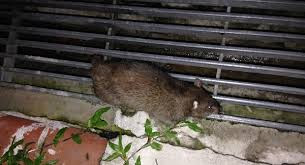People like to head inside during the chilly winter season because they want the warmth and security that a house offers. Unfortunately, so do rats. Wintertime is one of the peak seasons for pack rat and roof rat infestation. Once you understand why infestation can be so much worse during winter, you will understand the need for a professional Arizona rat control company to eliminate the problem.
Rat Control -- Rats Look for Warmth During Wintertime
The most obvious reason that infestation reaches a peak during the winter concerns the fact that they tend to seek shelter indoors to avoid the colder temperatures. In the absence of man-made dwellings, they will simply build thick nests to protect from the cold. From the rat's perspective, though, he would be a fool not to take advantage of our temperature-controlled homes and thick insulation.
Roof rat infestation often starts when the rodents enter houses looking for a good place to build nests. Once they are inside a roof, they find the best insulation material for their nests. Naturally, they stick around and raise their families, where they can stay warm during the winter. This is a great stroke of luck from the rat's point-of-view. We, though, know that infestation often lead to disease and property damage.
Rat Control Problems -- Rats Look for Food during Wintertime
Roof rat and pack rat infestation also happens more often during winter because the rodents are looking for a reliable source of food. Winter presents some real difficulties for wild animals. Rapidly falling temperatures mean that food sources become more scarce. Pack rat and roof rat infestation can happen as easily as the discovery of trash bins outside of your home. It does not take them long to realize that they can go directly to the source by finding a way into your house.
For the rats, this solves one of the biggest problems facing the animal kingdom -- starvation. For you, though, it creates a dangerous Arizona rat control problem. No one wants to open up the pantry to find containers that have been chewed by potentially diseased rodents, along with the droppings they often leave behind in your cereals, pastas, beans and other foods.
For more information click this link

No comments:
Post a Comment